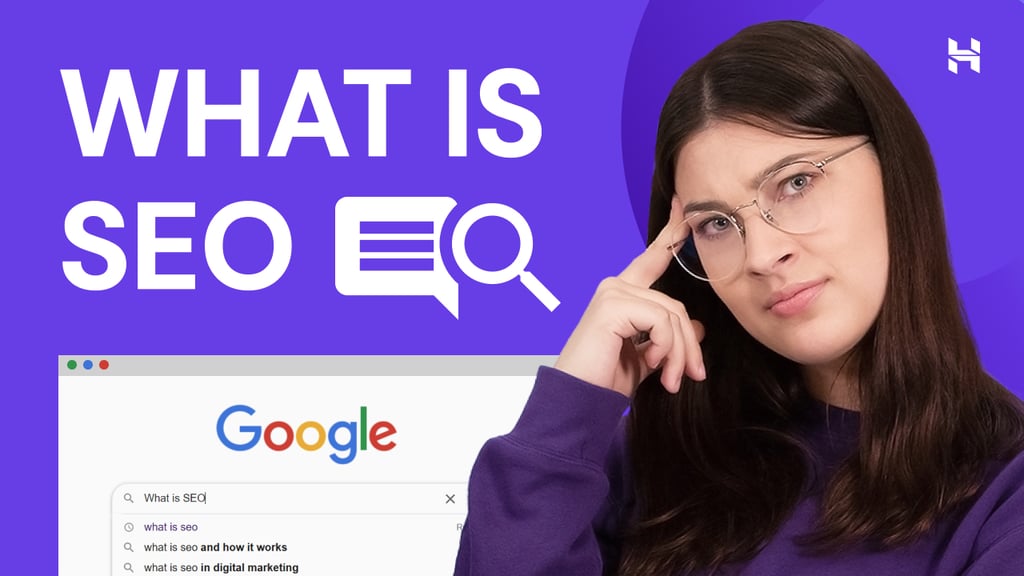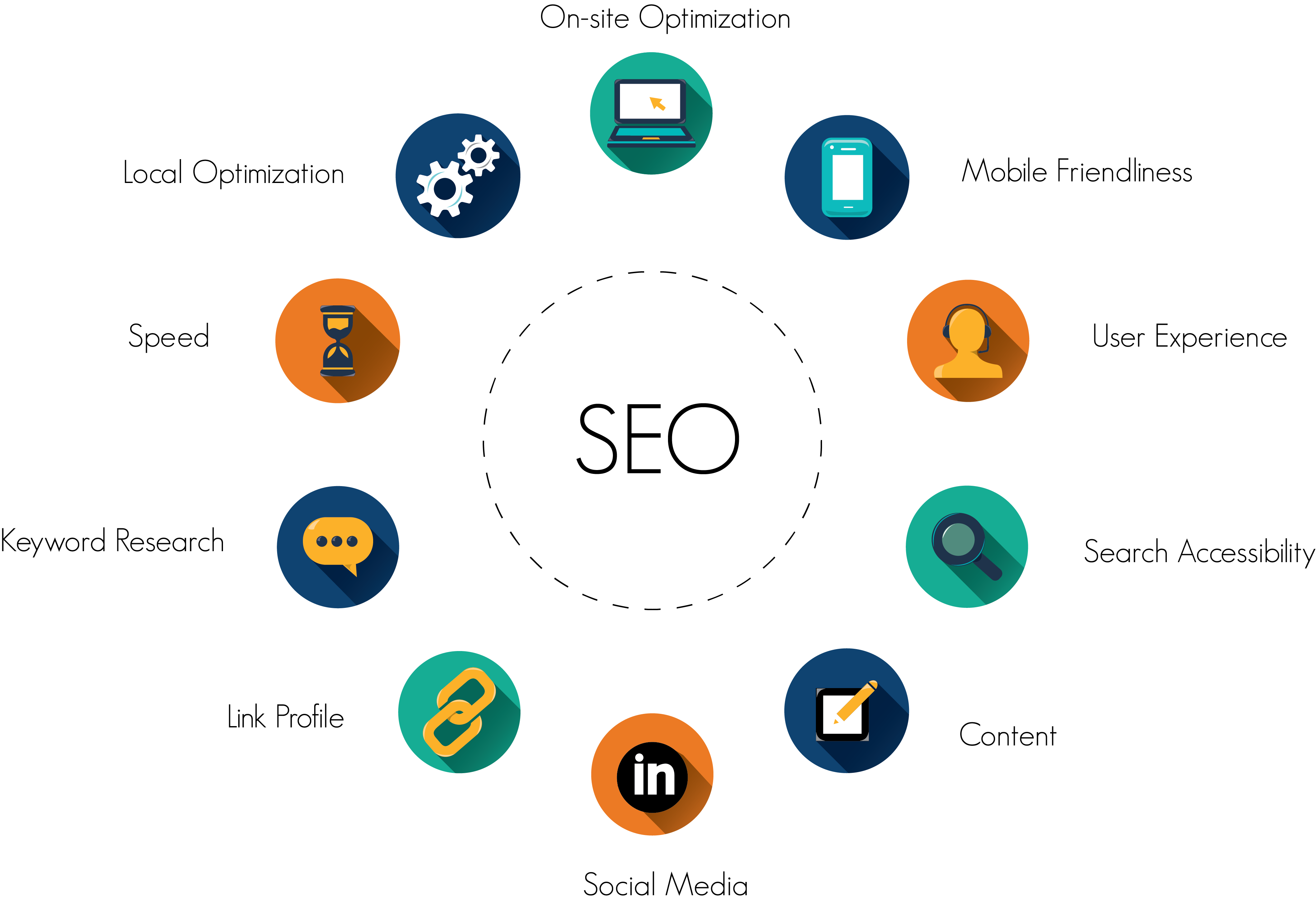How Does SEO Work?
by Admin
Posted on 13-06-2023 08:26 PM

This article has explained some of the basics of seo. If you’re keen to learn more, check out the links below. The digital culture network is here to support you and your organisation. Our tech champions can provide free 1-2-1 support to all arts and cultural organisations who are in receipt of, or eligible for, arts council england funding. If you need help or would like to chat with us about any of the advice we have covered above, please get in touch.
 Sign up to our newsletter below and follow us on twitter @ace_dcn for the latest updates.
Sign up to our newsletter below and follow us on twitter @ace_dcn for the latest updates.
Are you at the start of your seo journey? maybe you’ve heard that seo can help drive traffic to your website and get you higher rankings, but you aren’t really sure how it works or what areas to focus on? well, you’ve come to the right place. Read on to find out what every digital marketer should know about seo.
Seo stands for search engine optimization, and it is a practice of optimizing your web pages to rank higher on search engine result pages (serp). Seo also serves as a reliable and budget-friendly marketing strategy to help you drive traffic to a website and grow conversion rates. To better understand what seo is, this article will walk you through the search engine and seo basics, explain how search algorithms work, and what factors influence your site’s ranking. At the end of the article, you will also find the best seo practices and comprehensive resources to expand your seo knowledge.
When good seo is deployed consistently, those that do it more and better will outrank the competition. Many businesses feel they cannot afford to not be on the first page of a search result. But if a team works toward that goal and shows ahead of the competition, they will have a competitive edge.
What Is SEO – Search Engine Optimization?
Links - links from other websites play a key role in determining the ranking of a site in google and other search engines.
 The reason being, a link can be seen as a vote of quality from other websites, since website owners are unlikely to link to other sites that are of poor quality. Sites that acquire links from many other sites gain authority (called "pagerank" in google) in the eyes of search engines, especially if the sites that are linking to them are themselves authoritative. Content - in addition to looking at links, search engines also analyze the content of a webpage to determine if it would be relevant for any given search query.
The reason being, a link can be seen as a vote of quality from other websites, since website owners are unlikely to link to other sites that are of poor quality. Sites that acquire links from many other sites gain authority (called "pagerank" in google) in the eyes of search engines, especially if the sites that are linking to them are themselves authoritative. Content - in addition to looking at links, search engines also analyze the content of a webpage to determine if it would be relevant for any given search query.
Search engine optimization (often shortened to seo) is a major part of digital marketing efforts. It can be complicated and time-consuming, but it is an effective way to get your site in the face of your target audience. Search engines are a significant source of traffic for brands and organizations. This is no longer a secret, seeing how businesses seek out seo specialists. Becoming an seo expert requires experience, but the first step is to know all there is to know about the subject. In this introductory guide, we’ll answer the question: what is seo? we will give you a brief rundown of what seo means and how it works.
You’ve probably heard a hundred times that search engine optimization (seo) is a vital digital marketing tool. But do you really know how seo works ? even if you have a basic understanding of what it entails, you may still not have a solid grasp on this complex and multifaceted process. Seo is made up of multiple elements, and knowing what they are and how they work is key to understanding why seo is so important. In short, seo is crucial because it makes your website more visible, and that means more traffic and more opportunities to convert prospects into customers.
When evaluating a website, google and other search engines consider several different factors. To better understand this process, it is useful to categorize them as follows: technical factors; on-page factors; off-page factors. Technical optimization factors concern the technical foundation of a website. On-page optimization factors are responsible for the comprehensibility of its contents to a search engine. Meanwhile, off-page optimization relates to factors linked to the website’s overall status and popularity online. Each factor has its weight and influence. For instance, it is naive to disregard technical optimization, i. E. , the power of an effective website foundation. Similarly, a strong technical basis with weak (or rather unsuccessfully formatted and presented) content also results in low ratings by the algorithm.
How is SEO different from SEM and PPC?
Some people often ask me “is seo the same as digital marketing?” the simplest answer i can give is that seo is one of the tools available in your digital marketing arsenal. Seo can be part of your overall digital marketing campaign which normally includes other things like social media promotion, ppc, content strategy, etc. For more information read: difference between seo and sem good content is still the most important success factor with or without seo before closing this introduction to search engine optimization you must have very clear in your mind that seo cannot help you if you don’t have good content.
While exploring seo strategies, you might come across the terms search engine marketing (sem) and pay-per-click (ppc) advertising. If you’re wondering what these terms are and how they differ from seo, we’ve got you covered.
Both seo and sem are marketing strategies that drive traffic to your website through search. However, they function very differently. When you understand the distinctions between seo and ppc , you can rebalance your marketing mix to maximize roi from each strategy. I’ll break each one down in the next few sections.
How high each result ranks is determined by google’s algorithm. And although parts of google’s algorithm remain secret, years of experience in seo have given us insight into the most important ranking factors. These ranking factors can be divided into two categories:.
June 14, 2022 10 min read we all use search engines to find products and services online. Your customers included. Wouldn’t it be great if your website came up when people searched for a product or service like yours? that’s the basic goal of seo: to make your website more visible in online search engines (like google) so you get more visitors. Seo stands for search engine optimization. It includes all the work you do to make your site show up in search engines to attract more visitors. The most important areas of seo are keyword research, optimizing your content, and collecting incoming links.
Before you start to dive into the nitty gritty of title tags and html, it’s important not to skip an important step: customer and keyword research. Here’s where you figure out what your customers search for… and the exact words and phrases they use to search. That way, you can rank your site for things that your customers search for every day. Sound good? here’s exactly how to do it. Customer research if you already run an online business you probably have a good idea of what your target customer looks like. (also known as a “customer persona”. )here’s an example: this type of customer research isn’t just to help you create products that people want.
Since there’s no way to know exactly what influences search engine rankings the most, experts recommend that your seo strategy contain a variety of tactics. Those tactics can largely be broken down into two categories: on-page and off-page seo. On-page seo refers to the strategies that you implement on your webpages themselves, including everything from the design and written content, to your metadata, alt text, sitemap , canonical tags and more. Off-page seo refers to the steps you take outside of your pages. This includes elements like external links, social posts and other website promotion methods. Both on-page and off-page seo are essential in driving traffic to your site and in ultimately signaling to google that your site is a significant player on the internet.